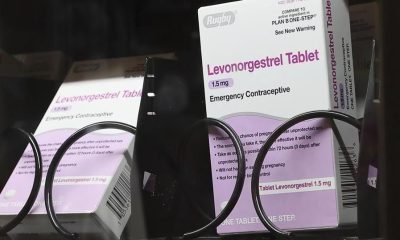(Bloomberg) — Plant-based chicken maker Next Gen Foods has closed a $10 million seed round co-led by Temasek International, a rare early-stage bet by Singapore’s state-owned investor.
The funding round was also backed by family office K3 Ventures, the Economic Development Board of Singapore’s New Ventures unit and NX-Food, a startup hub owned by Germany’s Metro AG. The investors will help fund a regional expansion as Next Gen prepares to start selling to Singapore restaurants from March 18.
The deal is a sign that Temasek, which manages S$306 billion ($232 billion) and also backs plant-based beef rival Impossible Foods, is ramping up deals in the alternative protein space as Singapore attempts to secure 30% of its food locally by 2030. While the firm’s subsidiaries like Vertex Venture Holdings have previously invested in seed funding rounds, the parent company has traditionally backed more mature businesses at the Series A level and beyond.
Next Gen was co-founded by Timo Recker, whose family has long worked in pork production. He wanted to move away from meats and in 2013 used his industrial know-how and some family capital to launch LikeMeat, which sells currywursts, schnitzels and other products made of soy and peas.
Tindle Brand
Recker sold control of that business last year and launched Next Gen in Singapore. It uses suppliers in the Netherlands to produce soy-based chicken pieces with “lipi,” a trademarked mix of plant-based ingredients it says imparts a chicken-like taste in the same way heme boosts the realism of Impossible Foods’ fake-beef burgers. The product will be sold under the brand name Tindle.
But where Impossible Foods’ heme features genetically engineered soy – forcing it to gain regulatory approval before entering some markets – Next Gen uses natural ingredients. For K3 Ventures Chief Executive Officer Meng Xiong Kuok, that was an important factor in making the investment.
“Building up their capabilities based on non-GMO soybeans helps guarantee and set the foundations for their potential entry into the China market,” he said.
Singapore is positioning itself as a global hub for alternative protein development and production. It recently became the first country to approve the sale of cell-based chicken via Eat Just Inc. and is home to Shiok Meats – a producer of lab-grown prawn meat.
The backing of institutional investors won’t guarantee success, with startups and conglomerates around the world working on plant-based meat products. The segment is expected by UBS Group AG to be worth more than $51 billion by 2025, or about 2.5% of the overall meat market.
Next Gen outsources the manufacturing of its products and will initially sell through restaurants instead of direct to consumers. To prevent partners from replicating their recipe, contractors produce different components before it’s assembled into the final product. Its Netherlands-based partner can produce 5,000 tons annually, enough for 9,000 restaurants, and Recker predicts this capacity will be enough to last two to three years.
“We’re building now our teams and will then scale the brand globally,” he said. “We want to become the undisputed leader for plant-based chicken.”
©2021 Bloomberg L.P.
Let’s block ads! (Why?)

Source link
Related

























